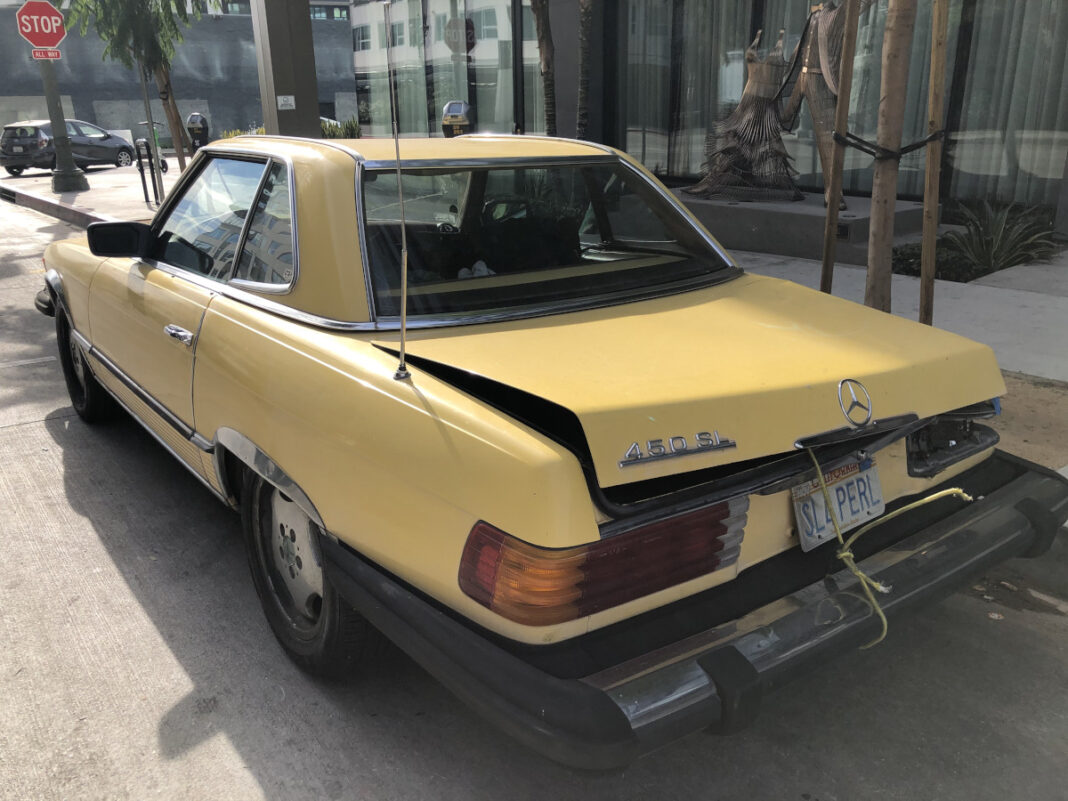UNITED STATES—It was so frustrating at every item on the list to have to stop and go through with the rigmarole again and again. How do you pantomime lard? Go around and point. It was the same way with the purchase of the lard, that we would carry in Heráclito’s rucksack, along with the rice, the beans, the sugar, bacalao and everything else. Since we were going to be dressed up, we allowed ourselves the luxury of buying two cans of condensed milk, like the luxury of having a pair of matching socks. The black man threw the items on the counter with disdain, and there was no time to dicker over price or quality of the items or the rust on the cans that had been on the shelf too long.
Everything all ready and bagged, one of us asked, “How much?”
The clerk understood this, since he began to figure out how much we would be set back with a school bus yellow pencil taken off of his ear and exclaimed the round nifty number of “nineteen ninety-five.”
“Whoa!” I shouted breathing the O with astonishment.
What we got isn’t five cents from 20 dollars, not by a long shot. Cabrera’s body tensed, a fold deepened between his nose and his forehead and his eyes blinked. We’d reckoned that 50 colons in supplies, the remainder going to vegetables from El Negro. When I was going to ask for an explanation for the price gouging, Cabrera, much cooler of us, broke in;
“Eighty pesos?! This scoundrel is robbing at least 30 from us,” and he made a real hullaballoo aimed at El Negro by banging his fists on the glass of the counter. El Negro scorched with rage and at last spit out a clear, “Ai don understand.”
“Sez he don’t understand you,” I said to Cabrera in Spanish to placate him.
“What don’t you understand?” he shouted at me. It was all quickly going from bad to worse. “Voy a mentar la mama to this big-mouthed ass to see if this is so.”
Cabrera’s fists were ready to deliver on what they promised, but Heráclito restrained him touching his arm and alerting him with his gaze that there was a policeman approaching. He packed a Colt .38 and had an enormous belt loaded with brass bullets. He distinguished his purpose, running his gaze over some of the knickknacks in the Urna. No escape. We had to pay what El Negro was asking, if we didn’t want to lose everything and pay a fine on top of that.
“It leaves us without buying the Lucky,” said Heráclito, remembering the cigarette brands, that was the only one along with Camel, that they sold in the company emporiums.
“Tell him to drop dead. Selling a half liter for three colons,” Cabrera pleaded, green with cholera. “I want to get the hell out of here.”
He had what he wanted, or thought he wanted, and he already hated it. He threw back a shot of rum and, after wiping his mouth with the back of his hand and spitting with anger, declared:
“This robbery pisses me off. This is the only way I know how to calm down.”
We left the Company Store, showering el Negro, the policeman and Allied Fruit with choice obscenities. He must have put up with it every day, because he didn’t reflect that it got to him and kept polishing the glass on the counter. He blew it off. And Cabrera and I got angry at our anger and shouted even more abuse. When we got outside, we doubled over in laughter.
Outside, in the dark banana fields, there nervously pulsed the opaque light of the fireflies. Samuel cut three banana fronds to cover our supply bags. There was thievery all around. And if that’s the law of the land, well do as the thieves do. The water all around –artificial rain—kept stubbornly falling through the elephantine fronds.
We’d walked some 60 steps toward the railhead, when Cabrera, who hiked ahead, sparked by the rum let out a prolonged, defiant shout at the Company Store. Someone who was just arriving at the store, where nothing had price tags, was just arriving to the store, and answered Cabrera shouting.
“Quiet cretin! I’ll pound in your ribs.”
Cabera threw the sack toward the railroad tracks, and kicked it back with the rabid exclamation:
“This crap bag has to pay for what El Negro did to us back there!” his eyes gleamed like emeralds while he clutched the machete in his hand.
We had to grab Cabrera and hold him back. It took the two of us to stop him from this stupidity.
“Stop these pendejadas, man. Don’t be a drooling retard. Or do you want us to work two weeks to line the pockets of the foxy policeman. Is that it?”
“The Devil free me,” he said, gathering up his bag. “I’ll dry up in jail before paying a fine to this pot-bellied cop.”
With that, Cabrera began to trot toward Puerto Limón.
To be continued…
Grady is the Wizard of Fiction.






